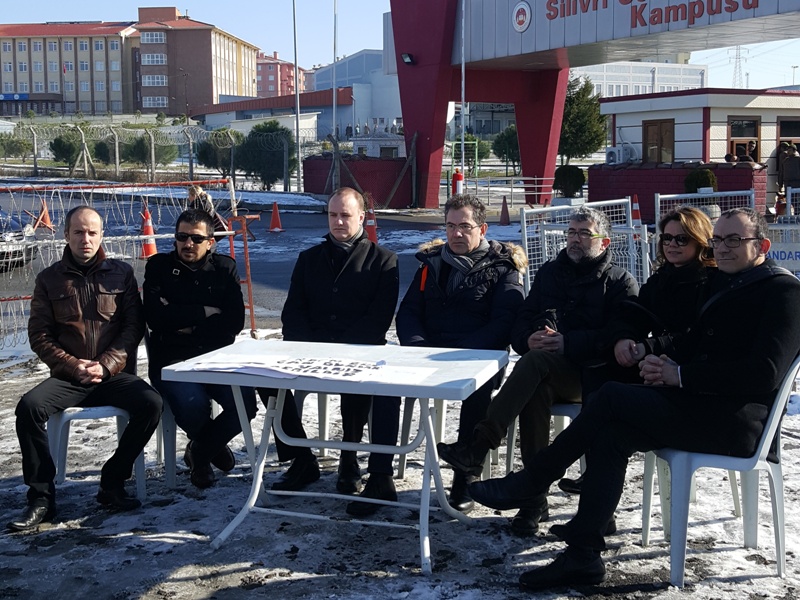The International Press Institute (IPI) today condemned Turkish authorities’ presentation of an indictment seeking to imprison journalists Can Dündar and Erdem Gül for life over reports claiming that Turkey’s intelligence agency secretly armed Islamist rebel groups in Syria.
Prosecutors on Wednesday unveiled the indictment, which Turkish newspaper Hürriyet reported charges both journalists with “gathering secret state documents for the purposes of political and military espionage”, “attempting to topple the government of the Republic of Turkey or attempting to stop either partially or totally the government from fulfilling its duties” and “deliberate support for a terrorist organization without being a member”.
If convicted, Dündar and Gül reportedly each face two life terms in prison, plus another 30 years behind bars. The charges are believed to stem from a May 29, 2015 report published in Cumhuriyet that included a video purportedly showing Turkish security forces searching intelligence agency trucks en route to Syria containing crates of ammunition and weapons.
Turkish officials claim the weapons were planted by adherents of a movement led by Islamic cleric Fethullah Gülen, a former ally-turned-nemesis of the ruling Justice and Development Party (AKP). Officials have labelled the movement a “terrorist organisation”, claiming it sought to develop a “parallel state” in order to force the AKP government and President Recep Tayyip Erdoğan from power.
The president, who brought the criminal case along with Turkey’s intelligence agency, has vowed publicly that the author of the reports would “pay a heavy price”.
IPI has sharply criticised the case, particularly since Dündar and Gül were detained in November following the AKP’s success in repeat parliamentary elections, and IPI Director of Advocacy and Communications Steven M. Ellis renewed that criticism today.
“The case against Can Dündar and Erdem Gül is a travesty, as illustrated by the preposterous nature of the charges set out in the indictment, the outrageous sentences being sought and the fact that they are already behind bars despite having been convicted of no crime. It could not be more clear-cut: these journalists are being punished for doing their jobs and for revealing information about the actions of government officials that those officials would prefer not to be known.”
Ellis was in Turkey on Wednesday as part of a delegation that travelled to the Silivri Prison, where Dündar and Gül are being held, to protest against the government’s refusal to allow anyone but close family, lawyers or MPs to visit the pair.
The delegates represented members of a broad coalition of leading press freedom and free expression groups that have sharply criticised the case against Dündar and Gül. In addition to IPI, the coalition includes the Committee to Protect Journalists (CPJ), Reporters Without Borders (RSF), the International Federation of Journalists (IFJ), the European Federation of Journalists (EFJ), ARTICLE 19, Index on Censorship, the Ethical Journalism Network (EJN), PEN International, the World Association of Newspapers and News Publishers (WAN-IFRA) and the South East Europe Media Organisation.
In remarks delivered outside the prison, delegates called on Turkish authorities to free Dündar and Gül without delay, to drop all charges against them, and to free all journalists detained in Turkey in connection with their journalism or as a result of opinions they have expressed. Some 31 journalists are currently believed to be behind bars in Turkey.
